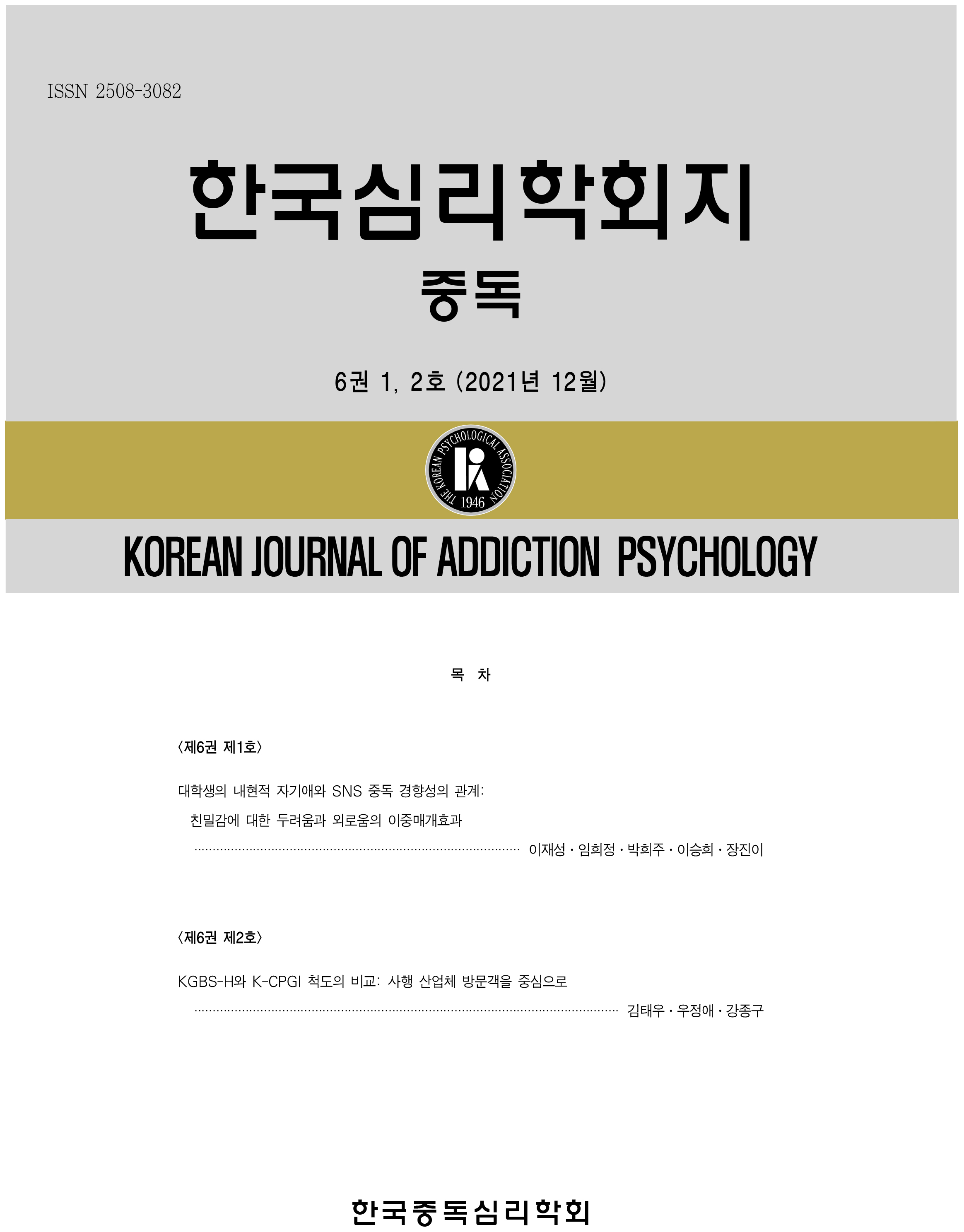Korean Journal of Addiction Psychology
- Log In/Sign Up
- P-ISSN2508-3082
 ISSN : 2508-3082
ISSN : 2508-3082
Vol.5 No.1
Abstract
This study examines previous researches on the gaming disorder, which was included under a section of Disorders due to Addictive Behaviors in the 11th revision of International Classification of Diseases (ICD-11) by the World Health Organization (WHO), and their limitations; proposes future direction of research. First, we looked at the current status of the home and foreign studies on gaming disorder from the perspectives of disciplines, themes, methods, subjects, and stances. Next, the limitations of the previous researches are the discrepancy in definitions of gaming disorder; the point that they are progressed under the premise of the concept of the disorder; a lack of the researches on the unique characteristics of the disorder; an inconsistency in persistency and prevalence of the disorder; and a lack of empirical researches. Finally, based on this analysis of the previous researches, we propose the necessity for a scientific evidence-based research plan and the researches on intervention, prevention, and subjects excepting adolescents for future researches.
Abstract
This research is conducted to analyze gambling addict's family stress cases and to develop scales that measure their stress level. On first step, literature review, 68 cases where family member of gambling addict experienced stress were collected and were categorized into 5 categories. On second step, in-depth interview, interview with 5 experts and 3 people who has at least one family member addicted to gambling to attain 36 stress cases. As a result, 104 cases were attained. From collected cases with high similarity, ambiguity were dropped to attain 76 cases with 5 categories. On third step, 16 experts reviewed and evaluated cases' validity to discard uncommon cases. As a result, 57 questions belonging to one of 5 categories, 'family relation', 'gambling addiction', 'finance', 'social', 'mental', were finalized as preliminary questionnaires for stress scale for gambling addict's family. Final questionnaires to be attained from this research can be used usefully in assessing stress levels of family member of gambling addicts and specifying cause of the stress. Finally future works and their utilization are also discussed.